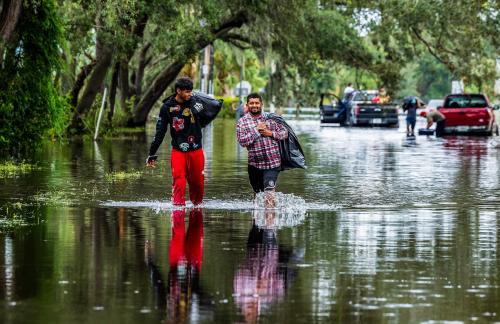Key Findings
- Drug trafficking in Turkey is extensive and has persisted for decades. A variety of drugs, including heroin, cocaine, synthetic cannabis (bonsai), methamphetamine, and captagon (a type of amphetamine), are seized in considerable amounts there each year.
Turkey is mostly a transshipment and destination country. Domestic drug production is limited to cannabis, which is produced mainly for domestic consumption, and small amounts of captagon. An effective poppy cultivation licensing scheme in the 1970s ended illegal poppy cultivation and the diversion of opiates into the illegal trade.
Since the 1970s, Turkish drug trafficking groups have grown in terms of their power, global reach, and market control. They are also among Europe’s most powerful organized crime groups when it comes to heroin trafficking. Moreover, other international drug trafficking groups also operate in Turkey.
The civil wars in Iraq and Syria have reshaped drug smuggling routes in the Middle East. Syrian drug traffickers now play a significant role in Turkey’s illegal drug trade.
The illegal drug trade in Turkey is a complex and multidimensional issue that poses public safety, national security, and public health threats and risks. The Kurdistan Workers’ Party (PKK) is strongly involved in drug trafficking and closely connected to terrorism in the region. Meanwhile, Turkish drug trafficking groups have also become involved in human smuggling, cigarette smuggling, and antiquities trafficking.
Turkey’s drug policy underemphasizes treatment, prevention, and harm reduction approaches, while overemphasizing drug seizures. Tens of thousands of people have been charged with drug trafficking for possession and sale of cannabis.
Policy Recommendations
- To improve its drug policies, Turkey should take a more balanced, evidence-based, comprehensive, and integrated approach. It should focus on and expand resources for reducing both demand and harm.
- Turkey should strengthen the capacity and independence of law enforcement and the judiciary through better laws, investigative procedures, and bolstered capacities.
- The government should improve anti-money laundering and anti-corruption capacities, regional counternarcotics cooperation, border security, and the vetting of migrants and refugees in Turkey for connections to terrorism and organized crime.
The Brookings Institution is committed to quality, independence, and impact.
We are supported by a diverse array of funders. In line with our values and policies, each Brookings publication represents the sole views of its author(s).
![DATE IMPORTED:February 10, 2001Bulgarian customs officers make a test on 321 packages of high-purity heroin which was found at the Kapitan Andreevo border crossing with Turkey, February 10, 2001. Bulgarian customs seized almost 190kg (420 lb) of heroin onboard a Turkish truck destined for Germany. Bulgaria, [which borders Romania, Turkey, Greece, Macedonia and Yugoslavia], lies on the so-called Balkan route for smuggling drugs from Asia to western Europe.](https://www.brookings.edu/wp-content/uploads/2017/04/turkey_drugs_001.jpg?quality=75&w=1500)


